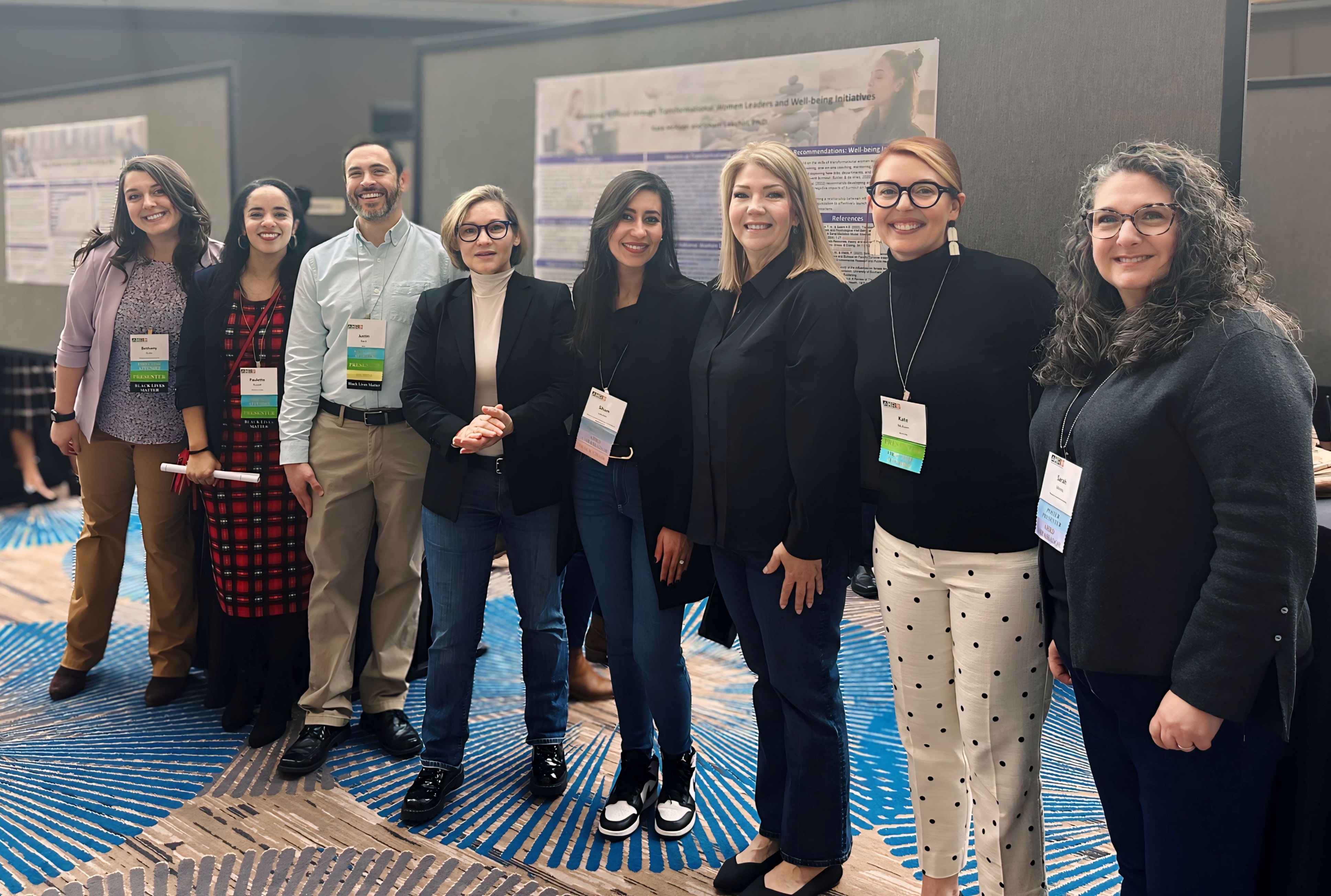- Academic Programs & Support
- Departments, Schools & Colleges
- College of Education and Allied Professions
- Human Services Department
- Online Masters in Human Resources (HR)
Master's Degree in Human Resources
An Online Degree for Working Professionals
Program Overview
Location: Online
Pre-Requisites: None
Full-Time or Part-Time
Semester Hours: 36
2-Years to Complete
Awarded Best Master's in Human Resources
Join us at one of our upcoming virtual Graduate School Open House events on Zoom! You'll have the opportunity to learn more
about Western Carolina University, understand the Graduate School application process,
and meet key program representatives.Virtual Open House
Wednesday, June 12: 5-6:30pm
WCU's 100% online Master of Science in Human Resources (MSHR) program is designed to meet the needs of busy professionals who are looking for advancement in the human resources field or who hope to make a career transition into HR.
See a visual of our HR Pro-Bono Consulting

Academy of Human Resource Development (AHRD) presentations February 2024. L-R: MSHR students Bethany Duke, Paulette Russell, Justin Slack; Dr. Marie-Line Germain, professor; Dr. Siham Lekchiri, professor; MSHR students Catherine Harkins and Kate McQueen; Dr. Sarah Minnis, professor
Program application deadlines are April 1 for Summer/Fall and November 1 for Spring.
Admission to the program involves a few simple steps.
- All applicants must submit three (3) references (from current/former professors or job supervisors). These are set up and collected through the online graduate application.
- A one (1) page essay describing why you are pursuing a career in Human Resources on why you believe you are a "good fit" with the mission and curriculum focus of the WCU MSHR program.
- An earned bachelor's degree from a fully accredited university is required.
- A transcript showing a conferred baccalaureate or higher-level degree must be uploaded with the online application. Do not send transcripts to Western Carolina University. Refer to the Application Instructions for specific instructions and for international transcript instructions.
- Applicants with a GPA of 3.0 or better, 3+ years of full-time HR work experience, or a previously earned graduate degree may be eligible for a GRE waiver.
Applicants who do not meet the above waiver requirements may still be admitted into the program by submitting GRE scores of at least 150 on verbal reasoning, a score of 141 on quantitative reasoning and an analytical writing score of 3.5.
* If extenuating circumstances prevent GRE testing, an applicant may be admitted conditionally, requiring GRE scores to be submitted within one semester.
Applicants who already have earned a graduate degree do not have to submit GRE scores.
Please Note: International applicants must also take the TOEFL exam and complete additional forms. They should also contact WCU's International Programs & Services Office.
The MSHR program is a 36-credit hour program, in which the curriculum consists of 7 required courses that all students take and 5 elective courses, all 3 credit courses.
HR 602, HR 605, & HR 610 are taken at the beginning of the program; HR 687 and HR
688 have prerequisites of 18 credit hours and HR 687 must be taken before HR 688.
Students with more than 5 years of full-time human resources-related work experience
may substitute another WCU HR course for HR 688. HR 698 is usually taken during a
student's last semester in the program.
All courses have been designed to align with the MSHR program competency model; therefore, our courses develop competencies
within the program’s four Leadership Competency domains: 1) Relational HR Leadership;
2) Strategic HR Leadership; 3) Operational HR Leadership; and 4) Ethical & Socially
Responsible HR Leadership.
Required Core Courses
- HR 601: "Organization Acumen for HR Leaders"
- HR 602: "Human Resources Research & Evaluation Methods"
- HR 605: "Principles & Practice in Human Resources"
- HR 610: "Human Resource Development"
- HR 687: "HR Consulting"
- HR 688: "Advanced HR Consulting"
- HR 698: "Capstone Seminar in Human Resources”
Popular Electives Courses
- HR 614: "Talent Acquisition and Retention"
- HR 615: "Organization Development"
- HR 660: "Talent Development"
- HR 662: "Total Rewards: Strategy and Plan Design"
- HR 665: "Responsible HR Leadership: The Regulatory Environment, Ethics, & Social Responsibility"
- HR 669: "Consulting Theory and Practice"
- HR 675: "Leadership in Human Resources"
- HR 677: " Digital HR and People Analytics"
- HR 693: "Selected Topics in Human Resources"
Course scheduling is subject to change. For a list of courses available each semester, view our Course Availability page.
Tuition and fees vary year to year and program to program.
The Masters of Science in Human Resources is an online program. You can explore detailed information about tuition for online and distance programs on the tuition page website.
The Master of Science in Human Resources (MSHR) program at Western Carolina University prepares socially-responsible strategic human resources leaders to serve effectively in diverse organizations including corporate, non-profit, and government settings. Using an organizational values-based, and human development-focused perspective, our faculty educates students from a variety of education and work experience backgrounds.
Our curriculum is based on strategic, operational, relational, and ethical and socially responsible human resources competencies in addition to academic scholarship that informs the field of human resources and comprises the foundation of the MSHR program. It is our goal to cultivate the next generation of HR leaders who are organizational change agents committed to the productive engagement and development of all organizational members.
The MSHR Program Competency Model highlights the leadership emphasis of our program.
Therefore, our courses develop competencies within each of the MSHR Program’s four Leadership Competency domains:
- Relational HR Leadership
- Strategic HR Leadership
- Operational HR Leadership
- Ethical & Socially Responsible HR Leadership.
Faculty

Left to Right: Dr. Sarah Minnis, Dr. Siham Lekchiri, Dr. Marie-Line Germain, Dr. John Sherlock
